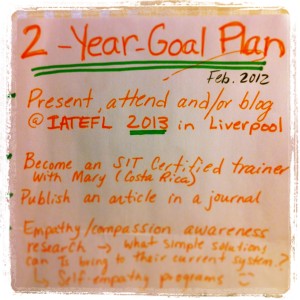5 GOLDEN RULES FOR TEACHING CHILDREN
Children are like a sheet of blank paper. Depending on how much you are able to engage your students’ attention, you can have them either acquire the language as a native speaker does or have them learn the language. I have always aimed to have my kids internalize and acquire English naturally. After 10 years, I have some golden rules that make language acquisition happen in a natural and fun atmosphere.
Fun! Fun! Fun!
Think about your own learning experiences. Which is more motivating, engaging, and lasting in your long-term memory – studying in a boring atmosphere or a fun one? I can hear you all saying Fun! Fun! Fun! So, you can easily imagine how important fun is in a young and very young learners’ class. Don’t be ashamed! Be funny! Be entertaining! And even be silly! Research clearly shows positive effects of fun and humor in learning. Neurologist and educator Judy Willis writes in her book, Research-Based Strategies to Ignite Student Learning: Insights from a Neurologist and Classroom Teacher: “The human brain and body respond positively to laughter with the release of endorphin, epinephrine (adrenaline), and dopamine, and with increased breathing volume (more oxygen). When a lesson starts with humor, there is more alerting, and the subsequent information is attached to the positive emotional event as an event or flashbulb memory.”
Stories!
Children are highly imaginative and enjoy stories that touch their imagination skills. Imagination can be developed or wastes away depending on how much you cultivate it. Although stories foster imagination skills, you need to choose them considering the level of your students, their interests, and their attention span. Additionally, make your stories come alive: use your voice, actions, body position, TPR (Total Physical Response), and realia. Get into the storytelling. First, enjoy it yourself!
Songs!
Songs, chants and rhymes are the most attention-getting activities for young and very young learners. Most kids love singing and dancing around, and this is one of the most effective ways of acquiring new language. You can also use music to set a mood in your class. For instance, if your students are in a sleepy mood then why not wake them up with an active song where they can sing, dance and hop around. Although you are not doing a singing activity, you can also play music in the background — preferably classical music. According to research, “one of the strongest effects of music on the brain is in the area of memory. Students of foreign languages were shown to be able to learn hundreds of vocabulary items in one day when listening to appropriate music. What is more, they remembered the words over time at a level of 92% retention.”
Games!
“Play is not a break from learning – it’s the way young children learn” summarizes the game and learning relationship so well. Play any games that are related to your topic or subject. Flashcards are a great resource for games. Play old games like bingo, treasure hunt, tic-tac-toe, snakes and ladders and many more. More importantly, create original games with your students. Color, cut, paste and make rules with your class. Play the games in pairs, groups or individually, and having a winner at the end of the game keeps the attention high with the help of competition. Games are also a great way of learning unconsciously as the students flow in the game and don’t realize that they are learning or revising the target language.
Digital Classrooms!
We are no longer teaching in a way that we were taught. When Marc Prensky calls today’s learners digital natives, he emphasizes how early and naturally children can use technology. Today’s learners are born into technology and most of them never struggle with it. So we should sync our students to the world outside. Why not plan a storytelling lesson on a digital platform and let students enjoy and also experience a new way of learning? Technology is not intended to be a substitute for teachers; on the contrary, it is a wide supplementary source for teaching.
Finally, you must be aware of online safety — it is crucial, especially for young and very young learners. Before a lesson, make sure you go online and check the tools or sites. Also, talk to your students about online abuse, about not sharing personal information with strangers, and explain the importance of apprising trusted adults of their online lives. If you intend to use technology in a lesson, make sure you have a plan B for any breakdown such as a power cut or a site that is down.
These are my 5 keys to approaching young learners’ classroom. What are yours?


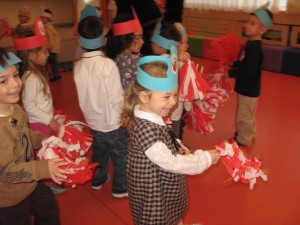
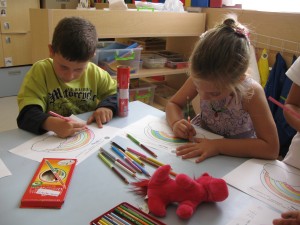
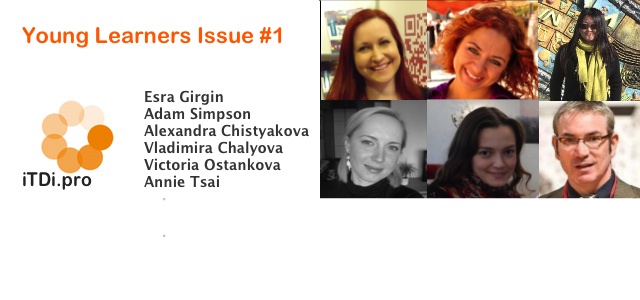






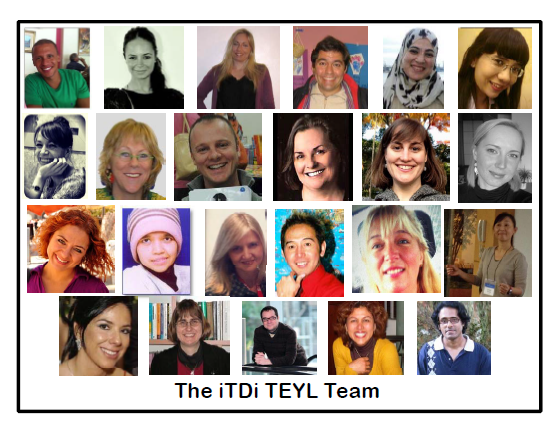

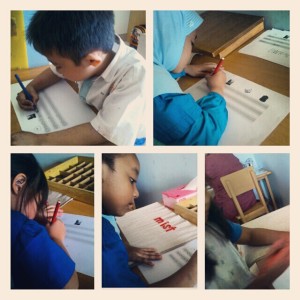


 Write It Down and Make It Happen
Write It Down and Make It Happen